- Home Page
- Company Profile
-
Our Products
- Fiberglass and Insulation Sleeves
- Fire Resistant Sleeve
- Polyester Expandable Braided Sleeves
- Insulation Sleeves
- SRBP Tubes
- Polyurethane Fiberglass Sleeves 1.5 kv
- Varnished Fiberglass Sleeve F Class
- Acrylic Fiberglass Sleeving
- Polyurethane Fiberglass Sleeve
- Fire Sleeves
- PVC Coated Fiberglass Sleeve
- Silicone Coated Fiberglass Sleeve
- Polyurethane Coated Fiberglass Sleeves
- Fiberglass Sleeve ( China Sleeve )
- Fiberglass Sleeving B Class
- Nomex Paper and Electrical Insulation Papers
- Pure Aramid Paper
- Laminated Fleece Paper
- Eurotherm Laminated Nomex Paper NPN
- Electrical Insulating Paper
- Laminated Aramid Paper
- Saturated Fleece Paper
- DuPont Nomex Paper
- Saturated Fleece Paper
- Insulating Kraft Paper
- Insulation Pressboard
- Laminated Nomex
- Pure Aramid (Nomex) Paper
- Electrical Insulation Papers and Laminates
- Laminated Fleece
- Black Kraft Paper
- Amotforse Brown Kraft Paper
- Diamond dotted Paper
- Fiberglass and Insulated Cables
- Glass Epoxy Sheets and Wedges
- Varnishes and Thinners
- Electrical Insulation Tapes
- Electrical Insulation Sheets and Fabrics
- PTFE Wire
- Silicon Cable
- Insulation Film
- Fiberglass and Insulation Sleeves
- Certificates
- Contact Us
SMC Sheet
50.0 INR/Kilograms
Product Details:
- Size Standard
- Material Sheet Moulding Compound
- Thickness 1 Millimeter (mm)
- Application Industrial
- Breakdown Voltage 7 Volt (V)
- Color Grey
- Click to view more
X
SMC Sheet Price and Quantity
- 50.0 INR/Kilograms
- 1 Kilograms
SMC Sheet Specification
- Standard
- Grey
- Industrial
- 1 Millimeter (mm)
- 7 Volt (V)
- Sheet Moulding Compound
SMC Sheet Trade Information
- 1000 Kilograms Per Month
- 3 Days
- Asia, Africa, North America, South America, Eastern Europe, Middle East, Australia, Central America, Western Europe
- All India
Product Description
The composite material known as SMC, or Sheet Moulding Compound, is utilised in a variety of sectors to create robust, lightweight, and long-lasting components. SMC sheets are created by mixing, heating, and moulding a mixture of polyester resin, chopped glass fibres, and other components into the necessary forms. SMC sheets are frequently utilised in applications where great mechanical strength, electrical insulation, and resilience to different environmental conditions are necessary.
Characteristics of SMC sheets:
1. Composite Material: Polyester resin serves as the matrix material for SMC sheets, which are then reinforced with glass fibres that have been chopped. These fibres provide the composite its mechanical sturdiness and rigidity.
2. Mechanical Strength: SMC sheets have strong mechanical qualities, including high tensile strength, flexural strength, and resistance to impact. They are suitable for applications that call for structural stability and load-bearing capacity because of these characteristics.
3. Electrical Insulation: SMC sheets naturally have the ability to conduct electricity, which makes them suited for use in the electrical and electronics industries. To assure safety and avoid electrical risks, they are employed in the production of enclosures, cabinets, and housings for electrical equipment.
4. Resistance to Corrosion: SMC sheets have a high level of corrosion resistance. This includes resistance to UV radiation, chemicals, and moisture. They are suited for outdoor applications and places where exposure to harsh circumstances is a concern because of their resistance.
5. Lightweight: Compared to their typical metal equivalents, SMC sheets are comparatively lightweight yet having a high mechanical strength. This function helps to increase energy efficiency, make things easier to handle, and cut down on transportation expenses.
6. Flexibility: SMC sheets may be moulded into intricate shapes and designs, which gives them design flexibility. Due to the integration of multiple functions and components into a single element, this design flexibility eliminates the need for assembly.
7. Automobile and Aerospace: SMC sheets are used in the production of body panels, hoods, spoilers, and interior pieces in the automobile and aerospace industries. In many industries, its combination of lightweight design and structural integrity is advantageous.
8. Construction and infrastructure: SMC sheets are also employed in the production of goods like manhole covers, utility boxes, and access panels in the construction and infrastructure industries. They are appropriate for these applications because to their strength and resilience to environmental conditions.
9. Recyclability: Some SMC materials are made to be recyclable, helping to promote sustainability and lessen the negative environmental effects of producing composites.
FAQ:
1. What Is SMC sheet?
Ans - The composite material known as SMC, or Sheet Moulding Compound, is made of polyester resin, finely chopped glass fibres, and additives. It is produced using a compression moulding method that involves mixing these components, heating, and compressing the resulting mixture in a mould to produce solid, high-strength sheets or components.
2. Why are SMC sheets useful in manufacturing?
Ans - To name a few advantages, SMC sheets have outstanding electrical insulating qualities, high mechanical strength, lightweight construction, corrosion resistance, and design flexibility. These characteristics make them excellent for a variety of uses in the construction, electrical, automotive, and aerospace industries.
3. How do the electrical and electronic sectors use SMC sheets?
Ans - Due to their innate electrical insulating qualities, SMC sheets are used to create enclosures, cabinets, and housings for electrical equipment. The safety of users and equipment is ensured by these components, which offer protection against electrical risks.
4. Can I use SMC sheets outdoors?
Ans - As a result of its resilience to external elements like dampness, chemicals, and UV radiation, SMC sheets are suitable for outdoor applications. They are perfect for products like manhole covers, utility boxes, and other infrastructure components because of their resilience.
5. SMC sheet recycling: Is it possible?
Ans - As a result of their recyclable design, several SMC materials support environmental sustainability initiatives. However, the SMCs unique composition and the available recycling procedures may have an impact on the recyclability. For detailed information on recyclability, its crucial to speak with manufacturers or recycling facilities.
Versatile Industrial Applications
SMC Sheets are extensively used in various industrial sectors due to their superior electrical insulation and mechanical strength. Common applications include electrical panels, equipment enclosures, and machine components. Their flexibility in processing and standard sizing make them a preferred choice for manufacturers and engineers seeking customized solutions.
Quality and Reliability Across Supply Chain
Supported by a wide network of distributors, exporters, importers, manufacturers, suppliers, and traders across India, SMC Sheets assure consistent quality and timely delivery. The sheets robust properties ensure operational reliability in both domestic and international markets, addressing specific industrial requirements.
FAQs of SMC Sheet:
Q: How is the SMC Sheet used in industrial environments?
A: SMC Sheets are primarily utilized as insulating barriers, structural supports, and protective panels in electrical and mechanical systems throughout various industrial settings.Q: What benefits does the 1 mm thickness offer for industrial applications?
A: A 1 mm thickness provides a balanced combination of flexibility and mechanical strength, suitable for lightweight, yet durable installations without compromising performance.Q: When should SMC Sheets be selected over other insulating materials?
A: SMC Sheets are ideal when high mechanical strength and electrical insulation are required, typically in applications involving electrical enclosures, switchgear, or equipment exposed to moisture and variable temperatures.Q: Where are these SMC Sheets commonly supplied and used in India?
A: They are widely distributed and utilized in manufacturing plants, engineering workshops, and electrical infrastructure projects across India.Q: What is the process involved in manufacturing SMC Sheets?
A: SMC Sheets are produced by compressing Sheet Moulding Compound under heat and pressure, resulting in a dense, uniform, and high-quality sheet suitable for industrial use.Q: How does the breakdown voltage of 7 volts benefit end-users?
A: The breakdown voltage ensures the sheet can withstand electrical stress up to 7 volts, enhancing safety and reliability in low-voltage insulating applications.Q: What advantages do standardized sizes and grey color provide?
A: Standard sizes facilitate easy integration into existing systems, while grey color offers aesthetic compatibility and resistance to dirt or fading in harsh industrial conditions.Tell us about your requirement

Price:
Quantity
Select Unit
- 50
- 100
- 200
- 250
- 500
- 1000+
Additional detail
Mobile number
Email

 Send Email
Send Email 
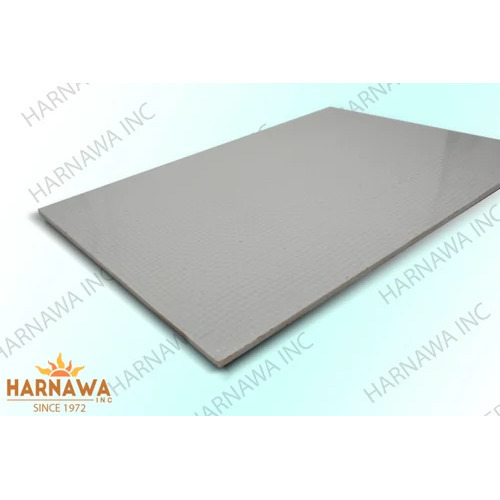
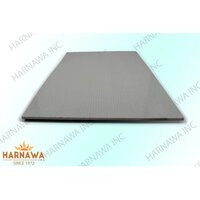
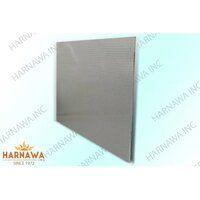





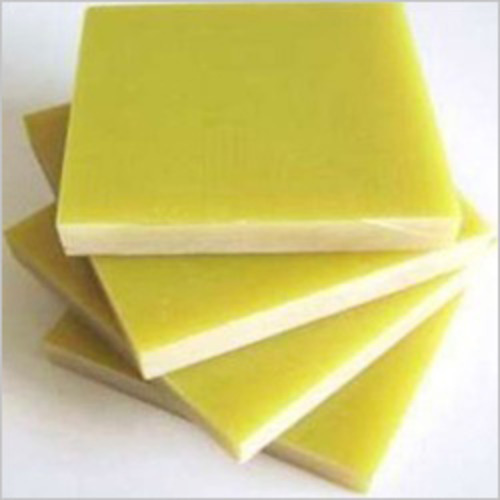
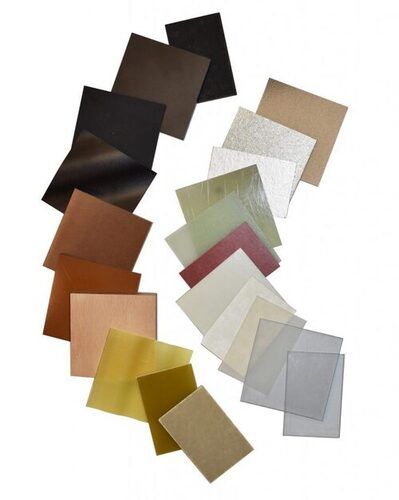


 Send Inquiry
Send Inquiry Send SMS
Send SMS Call Me Free
Call Me Free
 English
English Spanish
Spanish French
French German
German Italian
Italian Chinese (Simplified)
Chinese (Simplified) Japanese
Japanese Korean
Korean Arabic
Arabic Portuguese
Portuguese